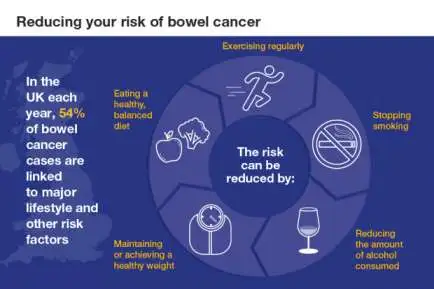
How does upadacitinib compare to abatacept for patients with unresponsive rheumatoid arthritis?
Rheumatoid arthritis (RA) is a progressive and often debilitating condition affecting an estimated 19 million people worldwide. It is a condition that causes inflammation of the joints, leading to pain, swelling and in many cases difficulty moving. In the last 10-15 years, improvements in biotechnology have led to the development of new treatments for RA. Biological disease-modifying anti-rheumatic drugs (DMARDS) have become the mainstay of RA treatment in recent years. However, these drugs don’t work for everyone. So, when biologic DMARDs fail, what is the next approach?
This is the question that a study recently published in the New England Journal of Medicine aims to shed some light on (1). The study reports on the results of a trial comparing the use of two drugs for rheumatoid arthritis, upadacitinib and abatacept. Both drugs are approved for the treatment of rheumatoid arthritis but are often reserved for use in patients in whom methotrexate and/or biologic DMARDs have not produced a desired response.
This study recruited patients who had previously tried biologic DMARDs. Included patients all had moderate-to-severe RA and had to have been diagnosed at least three months before entry to the trial. Patients were randomised on a 1:1 ratio into either the upadacitinib arm or the abatacept arm. The trial was also double-blinded meaning neither the patients, nor their doctors, knew whether they were receiving upadacitinib or abatacept. Patient’s pre-trial background medications were continued. The trial was conducted over a 24 week treatment period. However the study outcomes reported were assessed after 12 weeks.
The primary end-point measured by the trial was Disease Activity Score for 28 joints (DAS28-CRP). This scale is a measure of disease activity which incorporates biological markers such as C-reactive protein, as well as the patient’s own assessment of their symptoms. For the primary study outcome, upadacitinib was tested for non-inferiority against abatacept. However, a secondary end-point was the superiority of upadacitinib over abatacept. A further secondary endpoint assessed was the percentage of patients who achieved remission on either drug.
In total, 303 patients received at least one dose of upadacitinib and 309 received at least one dose of abatacept. After 12 weeks, the reduction in the DAS28-CRP score for upadacitinib patients was an average of 2.52, compared to an average reduction of 2.00 in abatacept patients. Upadacitinib therefore demonstrated both non-inferiority and superiority compared to abatacept. Patients receiving upadacitinib were also much more likely to achieve remission, with 30% of the upadacitinib patients in remission by week 12 compared to just 13.3% in the abatacept group.
Although the results of this study strongly suggest that upadacitinib is more effective than abatacept when it comes to treating patients with DMARD-resistant RA, there are a number of caveats. Efficacy is one important consideration in making a treatment decision, but safety also a concern. Over the course of the trial, serious adverse events occurred more frequently in patients receiving upadacitinib compared to abatacept (3.3% versus 1.6%). Upadicitinib was also associated with significantly more harmful effects on liver function, 7.6% of patients receiving upadacitinib experience hepatic disorders compared to just 1.6% of abatacept patients. Therefore although it appears to be more effective at 12 weeks, upadacitinib may also be less safe.
Furthermore, although the study focuses on the results after 12 weeks, it also presents the change from baseline of four core components of DAS28-CRP over the full 24 week period. It appears that by week 24, differences in improvement between upadacitinib and abatacept were smaller than what they had been at week 12. For example, at week 12 upadacitinib had produced a reduction in patient’s global assessment of disease severity of 33.85 compared to a 28.35 reduction produced by abatacept, a difference of 5.5. However, by week 24, this difference had shrunk to 1.83. The study does not adequately explain why the data focused on week 12.
It should be noted that the study was funded by AbbVie, the company which manufactures upadacitinib. This study does demonstrate that both upadacitinib and abatacept can be effective in treating RA and that upadacitinib may be a superior choice. However, further (ideally independently funded) studies with longer follow-up periods are needed to determine conclusively which drug represents a better choice for patients.
Written by Michael McCarthy
1. Rubbert-Roth A, Enejosa J, Pangan AL, Haraoui B, Rischmueller M, Khan N, et al. Trial of Upadacitinib or Abatacept in Rheumatoid Arthritis. New England Journal of Medicine. 2020;383(16):1511-21.
Image by PeachMoon from Pixabay
Related Post
 14
14 Aug
7 Essential Healthy Habits to Instill in Your Kids in 2024
In the high-speed universe of 2024, raising solid and balanced kids requires a blend of shrewd nurturing and adjusting to the most recent patterns. As guardians, it's critical to instill propensities that cultivate both physical and mental prosperity in our.
Read More 29
29 Jul
Which Symptom Indicates That Someone May Need Mental Health Treatment?
Today! In this article!, you can find the best treatment for mental health. Which symptom indicates that someone may need mental health treatment? Perceive the indications of requiring emotional well-being treatment and assume responsibility for your prosperity. Try not to hold.
Read More 08
08 Jul
What Is Self-Management of Chronic Disease?
Diabetes, joint inflammation, hypertension, lung illness, corpulence and other persistent sicknesses can make life challenging to oversee for a great many more seasoned grown-ups, frequently compelling them to surrender their freedom. The Challenges of Chronic Disease More established grown-ups are lopsidedly impacted.
Read More 01
01 Jul
7 Lifestyle Tips to Reduce Your Cancer Risk
How in all actuality do individuals bring down the possibilities getting malignant growth? There's a lot of exhortation. Yet, on occasion, guidance from one review conflicts with the exhortation from another. Disease avoidance data keeps on creating. In any case,.
Read More